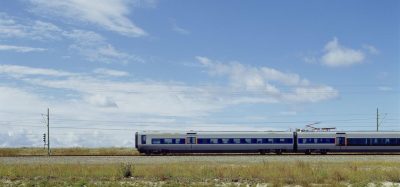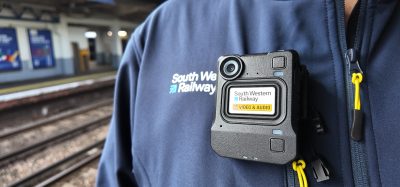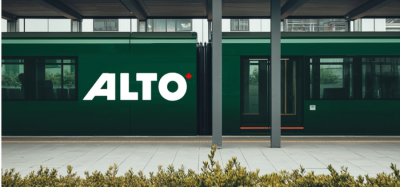From aeronautics to railways: Leading innovation in the railway industry
Posted: 23 July 2024 | Sam Bemment - Railway Industry Association | No comments yet
Sam Bemment, Technical and Innovation Manager at the Railway Industry Association, sat down with Global Railway Review’s Emily Budgen to discuss the evolution of railway technology, importance of industry innovation and how his diverse career path has shaped his vision for the future of integrated transport systems.
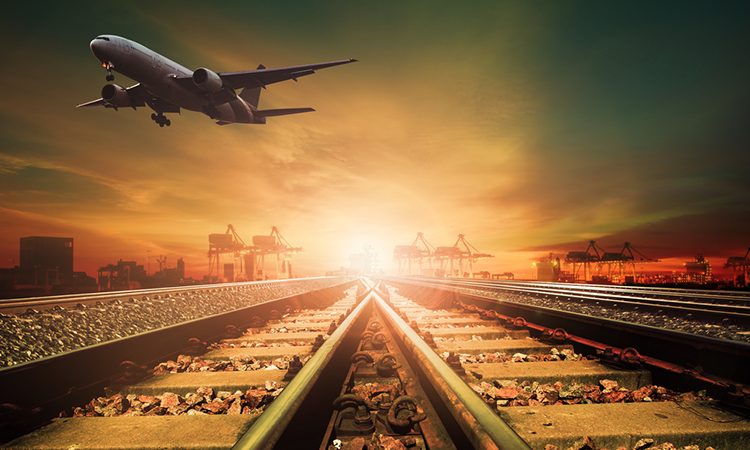

What was your route into rail?
I graduated in aeronautical engineering in 2009 during the big recession. Lots of people were getting made redundant from aero; I had always liked planes, but there were few jobs at the time and with the redundancies there were thousands of better qualified and more experienced engineers than me already on the job market.
So, right then and there in that summer I was forced to choose a new career. I did a bit of shopping around, saw the Network Rail graduate schemes, saw the projects in which you could get involved: big civils, complex problems, something where you can make a difference to people’s day-to-day lives, and career opportunities all around the world. I thought “yeah, I’ll go for that.” I applied, got accepted, and that was it.
My first day on the railway, Iain Coucher, who was Chief Exec of Network Rail at the time, came along to welcome our grad intake. He asked what degrees we’d all completed and out of sixty engineers, I was the only one from aero. He smiled at me in a friendly but curious ‘why are you here?’ way. The rest of the room stared at me, I blushed, and it was at that point I realised I might have some work to do to fit in!
You are one of the Technical and Innovation Managers at the Railway Industry Association (RIA). What does that role involve?
I’ve got to understand issues that are going on in a technical sense and be able to convert that to lobbying action where RIA can make a real difference”
I find it’s a really interesting role working for an industry association. I’ve got to have a reasonable understanding of everything to do with the railway – timetables, tickets, seat foam, cascading, pigeons, drainage, wheel rail interface, procurement regulations, autotransformers, – you name it! However, I don’t necessarily need to be an expert in any one thing, unless we need to focus efforts on a topic of prime importance to current affairs. At that point, I need to become an expert, and fast! Fortunately, I have a fantastic resource available to me- almost the entire supply chain. To bring that resource to bear, what I do need to know is who is working on what, or who is the subject matter expert, to whom I can refer a problem if something pops up.
I help run a lot of events – that’s the part of RIA which the public generally sees. However, behind the scenes to run those events, we need to know what’s going on in the industry. We need to know what is relevant to the people, client side and supply side, to deliver a programme that is of value to our members and wider industry.
The role means I have to stay abreast of current events, which involves researching changes to policy, and that leads me to writing and getting involved with a lot of technical and policy papers for RIA. This doesn’t mean I just sit in a room writing what I think; RIA represents over 360 different organisations in the supply chain. From your enormous 30,000-person multinational down to one person in a garage: they’ve all got an opinion but have very different pressures on their business every day. So, I’ve got to understand these issues that are going on in a technical sense and be able to convert that to lobbying action where RIA can make a real difference. Ticketing reform is a good example, having just made it into the King’s speech. In the run-up to this, and at the request of our members, I and a few others at RIA have been researching and promoting the benefits of ticketing reform with regards to ridership improvement, decarb, and social inclusion and mobility – you can read all about that under ‘Destination: Revenue Growth’ on our website. Now ticketing is high up on the agenda, and as reform could make a real difference to people’s lives, that gives me a warm fuzzy feeling. I love being part of an organisation that can have real impact like that, but there’s always more work to do.
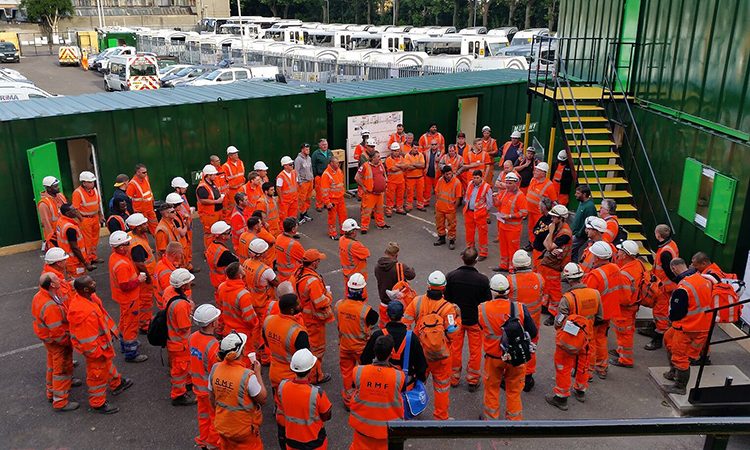

Credit: Network Rail
You balance that work with your role at Universal Signalling. How did the company come about?
Universal Signalling was a pub conversation from about five years ago where we were just talking about different and potentially better ways you could do signalling. The conversation carried on in the background and about two years ago a friend basically said, “Come on, if you think you’re so smart, why don’t we just start a company to do it?” And that’s it, really! I now split my time between RIA and Universal Signalling, which has grown organically with some very talented hires, who are busy developing ideas into a product suite.
I’m very busy but experiencing the pressures on an SME in the rail supply chain from the other side of the fence is really helping my RIA work. Similarly, I’ve been working on rail innovation policy at RIA for a long time, and now I am doing rail innovation at the sharp end, so it’s kind of putting my money where my mouth is!
You worked on the ticketing report released by RIA at the end of March. How did you find researching and writing that?
It’s a real challenge with a complex industry to try and get the opinions of thousands of people aligned into four things that somebody with the power to change can put into practice, but it’s a challenge I enjoy”
I’ve led on three big papers at RIA: innovation, data and digital technologies, and most recently, ticketing. I think ticketing was the most emotive subject when speaking to people, because ticketing touches everybody who uses the railway every day, and therefore everybody has an opinion on it. Not all those opinions align: while everyone wants the best for the railway, there are different opinions of what the best looks like for ticketing in the next five-to-ten years.
In writing these papers, we typically ask the members for their thoughts. We get all those responses together, hundreds of pages of written and audio evidence from interviews, draw our conclusions, float the conclusions back past the membership, and even to external bodies and clients like RDG and GBRTT. There are rarely opposite views, just more minor disagreements, but the papers create consensus through recommendations. Recommendations are important: they are the key takeaways that everyone can agree that, if implemented, can make a real, positive, difference.
We always try and boil it down to a couple of recommendations. There’s no point in writing a fifty-page paper that ends with fifteen pages of conclusions. “Here are four actionable things that would make it better” is much more effective. It’s a real challenge with a complex industry to try and get the opinions of thousands of people aligned into four things that somebody with the power to change can put into practice, but it’s a challenge I enjoy.
With ticketing, it’s a subject where people in the industry will have an opinion as a professional in the rail sector, but also as a consumer.
Yes, and not all those opinions are positive. Nearly everybody’s had a bad railway ticketing experience, whether it’s the ticket dissolving in your pocket because it got wet and then you get fined, or you didn’t tap in properly, or you missed your train and got hit with a walk-up fare. There’s even research showing that just the fear of the potential for these things is enough to put people off using the railway.
Equally, we have a lot of members who work overseas, and they’ve seen different practices. While there wasn’t a huge amount of praise for the way our mainline ticketing works, our members almost universally said that the TFL contactless system is basically the best in the world. It’s great to have the best in the world in the UK and have that recognised across our membership too.
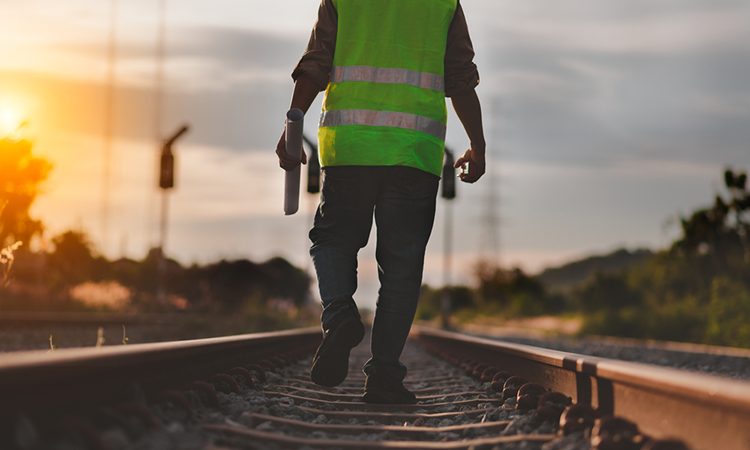

Also, if you look at PAYG schemes, for instance, the one employed by TfL, they can be intermodal. Do you think that in the next decade we could see that rolled out beyond London?
A joined-up transportation system, where you can reliably get to where you need to be without having to rely on a car, is considered a basic social provision”
PAYG can’t work everywhere, but for sure it should be rolled out across our cities or regions, and there are a few cities already leading the way with that, like those busy bees in Manchester. PAYG would likely not suit, say, long distance intercity travel, which lends itself more to airline-type bookings with seat reservations etc.
I think it’s interesting that there is a known and significant transport provision gap between the South-East and the rest of the UK. A joined-up transportation system, where you can reliably get to where you need to be for work or school for example, without having to rely on a car, is considered a basic social provision. A lack of this – for whatever reason – is known as ‘Transport Poverty’.
Transport poverty negatively impacts social mobility, productivity, inclusivity, in fact all sorts of measures. Multimodal is a huge contributor to lowering rates of transport poverty, and good ticketing underpins multimodal. So, there is a direct causal link between how good your ticketing is, and how good everyone’s lives could be! One of the many reasons this is an emotive topic.
However, in a fragmented transport industry it is never that simple. Here’s a good example. On mainline, liability rests with the passenger if multi-modal goes wrong. I think that to encourage modal shift, we need to change our thinking here. What do I mean by this? Well, what if I decide to get a bus to the station to get on a train. But then my bus is late, and I miss my train. Where does the responsibility then lie? Who should be paying for a new ticket? Me? The bus operator? Should there even be a charge? The penalty fare only exists to punish fare dodgers, and the walk-up fare taxes last minute journeys. I am neither, but I still end up handing over a lot of money, despite the fact it doesn’t cost to just plonk me on the next train. But the financial model we currently have is inflexible to this, and the passenger loses as a result. This is not a good way to encourage people onto rail! So true multimodal needs some extensive legals and some major changes to our fare principles. I hope the GBR era will be the time where we can fix all of this, and more. It works beautifully on TFL, and it’s not rocket science if the will is there.
Do you think the industry is ready for mag-stripe zero?
There needs to be a way for somebody who can’t use a smartphone, doesn’t want to, or prefers not to, for whatever reason, to be able to get a ticket”
I think the question is bigger and more complex than that. It’s about accessibility. “Do we want a railway that is accessible to all?” Absolutely yes. Not only does the research say so, but it’s also clearly the right thing to do.
It doesn’t matter what the ticketing technology is, but it must be inclusive to all. There needs to be a way for somebody who can’t use a smartphone, doesn’t want to, or prefers not to, for whatever reason, to be able to get a ticket, and at the same price and convenience as everyone else. We’ve standardised around mag-stripe, it’s everywhere, so it makes sense to continue using it just now. An equivalent way of having accessible ticketing for all may be printing QR codes, but remember, not all barriers are fitted with readers yet. So purely on those grounds, I think mag-stripe will be around for a little while longer. Equally, I don’t think it really holds anything back.
I see a lot of people, generally less regular travellers, who quite like going to a ticket office, getting a little orange piece of card for peace of mind. There are also times when my phone is out of charge, I like having a paper ticket because how else am I going to do it?
This year, 2024, is Global Railway Review’s 30th birthday, its pearl anniversary. Do you have a pearl of wisdom for us or the industry?
Happy Birthday! Don’t assume that because it is the way it’s always been done, that it is the best or only way of doing it. Question everything!


Stay Connected with Global Railway Review — Subscribe for Free!
Get exclusive access to the latest rail industry insights from Global Railway Review — all tailored to your interests.
✅ Expert-Led Webinars – Gain insights from global industry leaders
✅ Weekly News & Reports – Rail project updates, thought leadership, and exclusive interviews
✅ Partner Innovations – Discover cutting-edge rail technologies
✅ Print/Digital Magazine – Enjoy two in-depth issues per year, packed with expert content
Choose the updates that matter most to you. Sign up now to stay informed, inspired, and connected — all for free!
Thank you for being part of our community. Let’s keep shaping the future of rail together!



